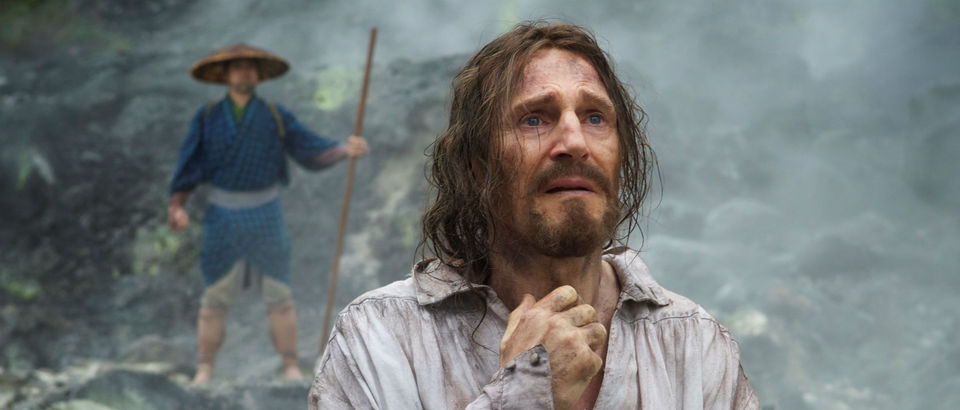 (4.5 / 5)
(4.5 / 5)
What is the worst thing you could do to yourself, and under what circumstance might such a thing be not only permitted but necessary?
This, in general terms, is the central question of Silence, a long-term passion project by Martin Scorsese and the latest of his works to tackle with the burden of religious conviction.
Based on a 1966 novel by Shūsaku Endō, the film documents the trials and tribulations of Sebastião Rodrigues (Andrew Garfield), a Portuguese priest, who, during the 17th Century, infiltrates Japan with his fellow Jesuit, Francisco Garrpe (Adam Driver), to preach the gospel and learn the fate of his mentor, Father Cristóvão Ferreira (Liam Neeson — just call him Qui Gai-Jin), who is rumored to have renounced the faith.
The Japanese Kakure Kirishitan (“Hidden Christians”) are tragically grateful for the presence of priests, however callow, and religious artifacts, however scant — even though it puts them all at terrible risk. Paranoid about Western influences, the Japanese Shogunate have closed the borders and mete out the direst punishment to anyone caught practising Christianity. Surrounded by blue mist and rocky shore, the villagers’ poverty is so abject the spiritual renumeration seems almost to justify it, until the inevitable happens. When their ultimatum — apostatise or die — becomes insufficient to the task, the Shogunate’s focus shifts to Rodrigues’ faith: apostatise or they will die.
Scorsese brings his usual technical virtuosity to bear, but in a manner as far removed from Wolf of Wall Street as possibly conceivable. In the most startling, the camera pulls, with impossible graces, back through branches and above the tree-line, locating Rodrigues’ as he prays, even as it abandons him in this tropical wilderness.
Forced to look on as Christians are drowned, burned, tortured, decapitated, Rodrigues’ agony at the choice before him, rendered with stark earnestness — and slight, but committed, Portuguese accent, by Garfield (his second act of martyrdom in film this year), is complicated by the wretched Kichijirō (Yōsuke Kubozuka), a tragicomic figure who no sooner apostatises or betrays than he returns to the fold, begging for forgiveness. What does it mean for Rodrigues’ own refusal to apostatise, despite secret doubts, should he grant him that?
His conviction is further challenged by Inoue Masashige (Issey Ogata), the Grand Inquisitor, whose bemused smile and apparent reasonableness hide that he, too — or perhaps he alone — is an immovable object. There is a discomforting measure of irony to his bow; the hilt of his Shōtō rising up, like a cobra ready to strike. Masahige’s argument is underpinned by Ferreira, a half broken man whose small measure of peace suggests there may be a life and purpose beyond the faith.
At 161 minutes, Silence is a monolithic work of cinema, a densely thematic treatise that truly grapples with profound themes. Any film where Jesus’ face materializes, in icon form, in a reflection, or his voice issues serenely from a fumi-e (literally a “stepping-on picture”, part of the process of apostasy, could seem absurd, but Scorsese’s revelation of this is so carefully considered it seems almost transcendent.
The film may not be to everyone’s tastes — or beliefs — but if you’re willing to give it time, to take it on its own terms and its own pace, Silence gets fairly close to a state of holy communion.
